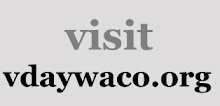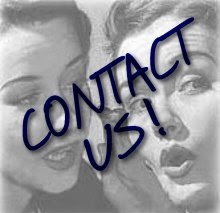Toyohari for Women
Have you ever thought you might like to try acupuncture, but the thought of someone sticking a needle in you gives you the shivers? You are not alone. Our memories of childhood immunizations or other medical procedures leave much to be desired in the pain arena.
But acupuncture need not be painful. It actually doesn’t even have to involve needles. A Japanese form of acupuncture, called Toyohari Meridian Therapy, developed by blind practitioners in Japan and the subject of numerous studies showing it’s effectiveness is now available in Waco.
Toyohari is wonderful at treating a variety of women’s issues, including menstrual disorders, menopausal issues and infertility. It also works effectively with many issues from which women in this fast-paced society suffer. These include headaches, insomnia, stress and depression, just to name a few.
It also works well with neck pain and low back pain. The first time I got treated for low back pain, I was amazed at its efficacy. The sacral area of my lower back had felt achy and unstable for over 20 years, ever since a fall on my tailbone. One treatment and I got up feeling like my lower back could actually support me without pain. This sensation lasted for several months until I did some heavy lifting. Another treatment fixed this problem – all without inserting needles!
Another time, I had been feeling out of sorts, constantly on the verge of tears. One of my Toyohari cohorts did a quick treatment that took about 10 minutes. I got up from the table feeling refreshed and renewed.
This form of treatment has been the subject of numerous Japanese studies since WWII. It is relatively new in the U.S., with only about 100 practitioners of this style practicing here.
After WWII when General Douglas MacArthur oversaw the occupation of Japan, he wanted to Westernize the Japanese and outlawed several activities that were unique to the Japanese culture, such as martial arts and acupuncture.
At that time, the only two professions open to blind people were massage and acupuncture. The head of the acupuncture society knew that MacArthur also did not believe in social welfare. He appealed to his distaste of having to support so many blind people if they could no longer make a living. So acupuncture was allowed to remain.
In order to preserve their profession, the Japanese acupuncturists knew they had to do three things: Make it teachable, make it reproducible and do accurate research to prove its effectiveness. They have done all three since that time.
If you would like more information about this unique style of acupuncture, please call Jamie Graham at 759-8050.
But acupuncture need not be painful. It actually doesn’t even have to involve needles. A Japanese form of acupuncture, called Toyohari Meridian Therapy, developed by blind practitioners in Japan and the subject of numerous studies showing it’s effectiveness is now available in Waco.
Toyohari is wonderful at treating a variety of women’s issues, including menstrual disorders, menopausal issues and infertility. It also works effectively with many issues from which women in this fast-paced society suffer. These include headaches, insomnia, stress and depression, just to name a few.
It also works well with neck pain and low back pain. The first time I got treated for low back pain, I was amazed at its efficacy. The sacral area of my lower back had felt achy and unstable for over 20 years, ever since a fall on my tailbone. One treatment and I got up feeling like my lower back could actually support me without pain. This sensation lasted for several months until I did some heavy lifting. Another treatment fixed this problem – all without inserting needles!
Another time, I had been feeling out of sorts, constantly on the verge of tears. One of my Toyohari cohorts did a quick treatment that took about 10 minutes. I got up from the table feeling refreshed and renewed.
This form of treatment has been the subject of numerous Japanese studies since WWII. It is relatively new in the U.S., with only about 100 practitioners of this style practicing here.
After WWII when General Douglas MacArthur oversaw the occupation of Japan, he wanted to Westernize the Japanese and outlawed several activities that were unique to the Japanese culture, such as martial arts and acupuncture.
At that time, the only two professions open to blind people were massage and acupuncture. The head of the acupuncture society knew that MacArthur also did not believe in social welfare. He appealed to his distaste of having to support so many blind people if they could no longer make a living. So acupuncture was allowed to remain.
In order to preserve their profession, the Japanese acupuncturists knew they had to do three things: Make it teachable, make it reproducible and do accurate research to prove its effectiveness. They have done all three since that time.
If you would like more information about this unique style of acupuncture, please call Jamie Graham at 759-8050.
(We hope you enjoy this new feature, authored by Jamie Graham, L.Ac., of Healing Touch Acupuncture. Jamie is a licensed acupuncurist and specialist in women's holistic health care. Visit her website here.)




No comments:
Post a Comment